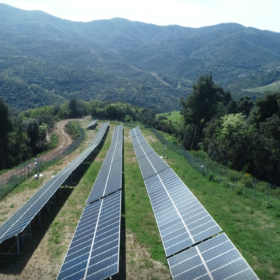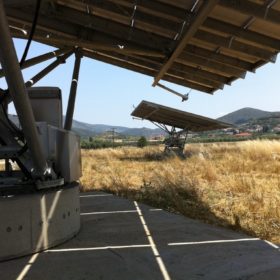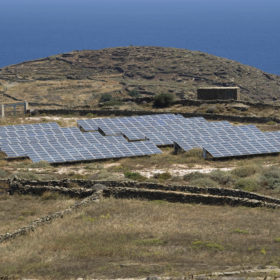Greece’s second PV-wind auction to tender 500 MW in April
Energy regulator the RAE has said the country will host its second joint PV and wind capacity auction on April 2.
Greece to overhaul licensing regime which puts the brakes on solar
The energy ministry has published a plan to radically simplify the renewable energy permitting process. The new system is expected to come into force as early as next month and will be applied retroactively to address a 22-month backlog in generation license applications.
Mt Athos mini-grid shows Greece the way forward
A monastic community on the Mt Athos peninsula this year installed a solar-storage-diesel mini-grid which is set to be augmented by a biomass combined heat and power system in March.
Greece’s PV tender falls to €0.05382/kWh, as incumbent utility transforms
Greece’s energy regulator has announced the results of the country’s latest round of tenders for renewable energy, which saw the incumbent utility offer the country’s lowest bid for a solar PV project.
Europe on track for decade-topping 16.7 GW of new solar this year
Trade body SolarPower Europe’s preliminary statistics suggest this could be the continent’s best year for PV since 2010, with capacity additions set to soar 104% year on year. Spain is leading the way with an expected 4.7 GW of new solar, followed by Germany, with 4 GW.
Solar to the fore as Athens Airport announces plan for net zero carbon ground operations by 2025
Greece’s largest international airport has set a goal to operate as a net zero carbon emitter by 2025, mainly via investing in on-site solar. Should the goal be met, the airport will be Europe’s first to rely on self-generated electricity and operate with net zero emissions.
Greece aims to install 5 GW of PV by 2030
Greece has published a document that lays a path for national energy and climate policy over the next decade, while outlining plans to facilitate significant PV development through 2030.
Chinese trade visit presages big investment in Greece’s energy infrastructure
Beijing already owns 24% of Greece’s electricity transmission system operator and has pledged to back a new Greece-EU funded interconnector to Crete which is set to open up more possibilities for solar on the island. The arrival of two of China’s biggest lenders also offers the prospect of new investment in renewables.
European coal fleet will run at a loss of €6.57bn this year
Economic thinktank Carbon Tracker used financial modeling to determine the profitability of every coal power plant in the EU. On average, 79% of the facilities run at a loss, with Germany, Spain and Czechia among the states particularly exposed to the consequences – for coal investors and the public.
Greece and Hungary pledge to phase out coal
Athens-based policy group The Green Tank labelled Greece’s decision “historic” while Europe Beyond Coal, an alliance of civil society groups working to make Europe coal free by 2030 said Hungary should target a more ambitious 2025 phase-out.










